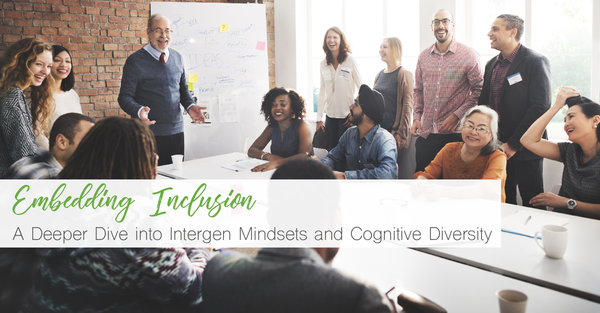Drop off your CV
We serve the global HR community through our offices located in Delhi, Hong Kong, London, New York, São Paulo and Singapore and have placed HR leaders in over 30 countries.
Elliott Scott HR UK recently ran a webinar in partnership with Sasha Scott, Founder at Inclu...

The session started with a big focus on community and the importance of this now, more so than ever. During this webinar, we looked at Inclusion from 3 aspects:
There are a lot of misunderstandings, and we need to look at our language and remove the fear about saying the wrong thing. One of the central themes is how we communicate and what words we use to create a respectful environment where we feel safe to ask questions. The companies that are doing this well are those that are looking at reverse mentoring and have created shadow boards, which are groups of age-diverse employees, regardless of level, that mirror the traditional board of directors. They have intergenerational teams where there is a level of safety where people can ask questions.
In our last seminar we talked about key themes for 2020 and how the workplace experience is a key trend for Generation Z, they are focused on experiences rather than possessions. They are very negative about labelling and believe in a dialogue to resolve conflicts, which is a very different mind-set to the millennials.
From an organisational perspective, we need to think about how we harness technology to create more inclusive communication, and with the backdrop, we are in now, we are all relying on technology as a form of communication and are forced into a mindset around more open communication and more cross-generational mentoring. It is important to recognise we all have a strong affinity bias, but in today’s environment, we have to evolve into more mixed-generational teams, and we have to think about how our affinities are going to play out (we all have 150 biases on the go at any one time!) What people want is to be asked more questions and to be authentically listened to. There is more responsibility and accountability on employers to check in on employees through pulse surveys and chat rooms. Communication is the key on all of this and we need to get better at it!
The discussion continued across broader Inclusion and Diversity and the importance for organisations to prioritise inclusion over diversity. Sasha shared a slide on the Inclusion Imperative from Deloitte Consulting in which organisations with an inclusive culture are 2x as likely to meet or exceed financial targets, 3x as likely to be high performing, 6x more likely to be agile and innovative, 8x more likely to be achieve better business outcomes All very compelling! Businesses need to understand the difference between Inclusion and Diversity.
Diversity is about our demography and who we are. Inclusion is very different and is how we do or don’t behave, and we all have to consider what micro behaviours we can adopt to drive Inclusion. Thinking about the language we use and treating people as individuals and un-stereotyping. Cognitive Diversity Cognitive diversity refers to how we can optimise diversity of thought so your company can benefit from different ideas and thoughts. Sasha shared the Diversity Dividend from Deloitte Insights and how different ideas lead to more innovation and lower risk. But if you go too extreme on diversity, you don’t get any consensus, so it’s about balance and really considering to what extent we listen. We need to create cultures of psychological safety - meaning being able to show and employ oneself without fear of negative consequences. Employees need to have a voice and be heard, this creates a sense of belonging in an authentic way. The current climate and the impact of COVID-19 At the moment, there is a level of fear across the globe, and how we will operate in this environment is still developing, but we must evolve our behaviours, and they have to change immediately. Isolation has created a huge challenge on inclusion, but we are also seeing how much of a community is being created through social media and using technology to reach people. We need to encourage people to have a virtual mindset and to use technology to strengthen our relationships and drive inclusion deeper. In the short term, we need to be tech savvy and help each other. And it is the responsibility of leaders to set the new norm. We need to consider working patterns, i.e. do you work well in the morning or evening and not just get everyone to adapt to the way you work? Ask people how they would like to be treated and how they want to work.
Trust is essential. Everything we’ve talked about in this session relates to differences: different generations, different perspectives, and different ways of thinking, and how they can all be bound together in this new environment through virtual technology, honesty, and the community to move forward. Looking after your mental health is essential at this time, and it’s important to take work breaks, get fresh air or learn a new skill, whatever will help you retain a positive mindset.
Our virtual HR Community is more important than ever, and we are available to talk to anyone in more detail during this session or to just have a general chat and check-in. Reach out to me at kh@elliottscotthr.com or on LinkedIn.
Take care, Kirstin and the rest of the Elliott Scott HR team